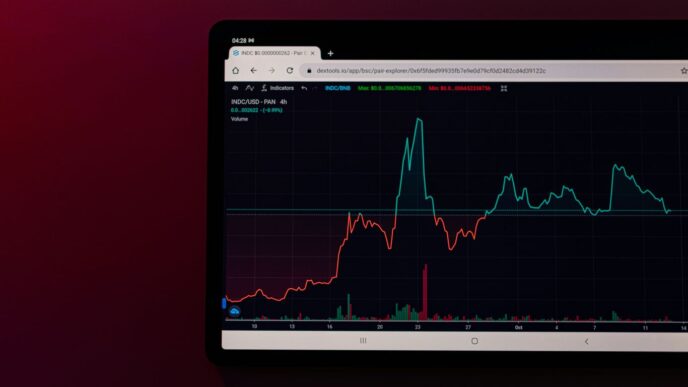Thinking about packing your bags and heading somewhere new just because of crypto? You’re not alone. With so many countries changing their rules and taxes around digital currencies, picking the right place to live or invest in 2025 can feel overwhelming. Some places roll out the red carpet for crypto fans, while others make it tough just to open a bank account. This guide helps break down what you really need to know before making the move to a crypto friendly country.
Key Takeaways
- Look for countries with clear crypto laws and low taxes, not just hype.
- Residency and citizenship programs can make or break your relocation plans.
- Banking support matters—a friendly legal system is useless if you can’t move your money.
- Quality of life, from safety to community, should be part of your decision.
- Always double-check the latest rules and get advice before making big moves.
Key Characteristics of a Crypto Friendly Country
When looking for a place to live or invest as a crypto enthusiast, it’s not just about sunshine or low rent. The country itself needs to make it easy to hold, use, and grow your digital coins. The most important feature of a crypto friendly country is a supportive environment for anyone involved in digital assets. There’s more to it, though. Let’s break down the main features you’ll want to look for.
Regulatory Clarity and Legal Recognition
Trying to move your crypto life to a new country without clear rules can be a headache. Ideally, you need legislation that spells out exactly how crypto is treated, both for businesses and individuals.
- Legal recognition of cryptocurrencies (Bitcoin, Ether, etc.) as assets or digital money
- Established financial regulators and straightforward compliance requirements
- Well-defined paths for applying crypto laws—nobody wants surprise fines or confusion
Countries with good "regulatory clarity" usually have:
- Official government guidelines
- Support for blockchain innovation
- Frameworks protecting both investors and consumers
Some European countries have set solid standards for legal frameworks, making them attractive to crypto investors and companies.
Tax Treatment for Crypto Investors
Let’s face it—taxes are probably the first thing on your mind if you’re relocating for crypto gains. It’s not just about low rates; transparency and fairness matter too.
Here’s a quick look at how countries differ on crypto tax:
| Country | Capital Gains Tax | Long-Term Tax-Free? | Short-Term Tax-Free? |
|---|---|---|---|
| Portugal | 28% (under 1yr) | Yes | No |
| Germany | 0% (over 1yr) | Yes | No |
| Malta | Varied | Sometimes | Sometimes |
| Singapore | 0% (personal) | Yes | Yes |
- Prefer low or zero capital gains tax
- Tax guidance for both personal and business crypto activities
- Look for countries that distinguish between long-term and short-term holdings
It’s also worth checking if crypto-to-crypto transactions or NFTs are taxed—the details can add up fast.
Banking Support and Infrastructure
A friendly government is great, but you still need banks to play along.
- Local banks or neobanks that support crypto transactions
- Easy fiat-crypto exchange options (not just ATMs)
- Transparent fees for moving money between crypto and regular accounts
If banks are suspicious or have slow compliance, everyday life can be tricky. Look for countries where major banks handle crypto business, or where there’s public support for blockchain.
In short, a crypto friendly country has:
- Transparent rules and open regulations
- Fair and predictable taxes
- Bank infrastructure that welcomes crypto
Getting all three is what really lets you build a life and portfolio without constant hurdles.
Evaluating Tax Policies on Crypto Assets
Figuring out where your crypto gains will be taxed the least can honestly feel like searching for a needle in a haystack. But it’s the single most important thing for a lot of investors. If you mess this up—if you move somewhere and suddenly get whacked with a giant tax bill on your ERC-20 coins—you’ll regret it for years.
Zero and Low-Tax Jurisdictions
Some countries openly court crypto investors with zero or very low tax rates on crypto gains. That gives you a reason to look deeper than the flashy headlines. Take Portugal for example: until 2023, long-term gains were completely tax-free, and even now it’s only short-term that gets hit. The UAE and Malta have built reputations on friendly rules, often letting you keep most (or all) of your profits.
Here’s a simple comparison:
| Country | Short-Term Crypto Gains | Long-Term Crypto Gains | Special Notes |
|---|---|---|---|
| Portugal | 28% | 0% | Long-term: held over 1 year; crypto-to-crypto often untaxed |
| Malta | 0-15% | 0-15% | Rules depend on activity type |
| UAE | 0% | 0% | Most emirates; rules for businesses may differ |
Differentiating Long-Term and Short-Term Gains
Not all gains are taxed equally. In some countries, you’re fine if you hold for a year or more. Quick trades? That’s a different story. For example:
- Portugal: Holds under one year are taxed, but those over a year aren’t.
- Germany: Crypto held for over a year isn’t usually taxed.
- Singapore: Personal capital gains—no tax, regardless of how long you hold.
Always read the fine print. Many places have holding period rules that can catch you off-guard if you’re planning a fast exit.
Territorial Versus Global Tax Systems
Different countries look at your money in different ways. In a global tax setup, like the US, you’re taxed on everything, everywhere—no matter where you live. Territorial tax systems, found in places like the UAE or Singapore, only care about income actually inside their borders.
So, some important ways this will affect you:
- Double taxation: You might owe in two places if you’re not careful.
- Residency is key—a lot of countries expect you to stay at least half the year (usually 183 days) to get tax breaks.
- Some places have exit taxes or require you to declare foreign assets (complex legal compliance matters are driving more countries to tighten rules each year).
Keep in mind, crypto laws change fast—as regulators scramble to keep up with new trends. It pays to check what’s current, not just what was true last year. If you want to keep more of your hard-earned gains, picking the right country (and understanding its tax quirks) is step one.
Understanding Residency and Citizenship Programs

When you’re thinking about packing your bags and finding a crypto-friendly home, residency and citizenship options are right at the top of the list. But honestly, getting set up in a new country with your digital assets is a bit more complicated than booking a one-way ticket. Each country sets its own rules, and some make it much easier for crypto folks than others. This section unpacks the pathways you might follow—and some of the snags that could catch you off guard, too.
Residency by Investment Options
Many countries offer the chance to become a resident by making a qualifying investment. Usually, that means:
- Buying real estate or a government bond
- Depositing a certain amount in a local bank
- Investing directly in a local business
Some places, like the United Arab Emirates, now allow investment through property or business, with minimum investment thresholds (often over $500,000). Malta and Portugal have similar incentives for investors, though the required amount can vary a lot. While not every state lets you use crypto directly for these investments, you can almost always convert crypto to fiat and proceed from there. Flexible investment routes are key if you’re holding much of your wealth in digital assets.
Golden Visa and Fast-Track Permits
‘Golden Visa’ programs have become a hit around the world. They let investors (and sometimes their families) get residency—sometimes even permanent residency—in exchange for significant financial contributions. The perks usually include:
- The possibility of long-term or permanent residency after a set period
- Rights to live and work in the country
- Family inclusion in the same application
Different countries offer their own take on the fast-track permit. For example, the UAE’s Golden Visa gives up to 10 years of residency for specific investment criteria, and Malta positions itself as a top blockchain hub with a variety of residency routes. These options are especially popular with crypto investors looking for quicker, less bureaucratic paths to legal residency.
A quick at-a-glance table:
| Country | Minimum Investment | Residency Length | Notable Perks |
|---|---|---|---|
| UAE | ~$545,000 (property) | Up to 10 years | No personal income tax |
| Malta | Varies (real estate) | 1 year, renewable | Blockchain-friendly environment |
| Portugal | €500,000+ | 5 years, with route to citizenship | EU access |
Challenges in Securing Residency
Nobody tells you about the paperwork until you actually start the process. Securing residency or citizenship as a crypto investor can be tough for a few reasons:
- Proving the source of your funds is harder if your assets are digital—most countries want a clear money trail.
- Regulations about using crypto for direct investment change often, and many governments require assets to be converted to fiat before you can use them.
- Application requirements can include a clean criminal record, detailed health checks, and sometimes even in-person interviews or tests of your commitment to the country (like proving basic language skills).
If you’re thinking about taking the leap, take the time to:
- Check each country’s latest application rules (they can change quickly)
- Make sure your digital asset paperwork is in order (blockchain records are rarely enough by themselves for officials)
- Budget for application fees, legal help, and the potential cost of moving
Getting professional advice is never a bad idea. The rules are changing fast, and what works for one person might not for another. Make sure you have a real-world plan before you start uploading bank statements and booking flights.
Quality of Life Factors for Crypto Enthusiasts
When thinking about where to move for a friendlier crypto scene, people usually look at more than just tax rates or legal loopholes. Where you actually live—your day-to-day comfort and connections—matters as much as how much tax you’ll pay. Here’s what most crypto folks end up weighing when picking a new country or city:
Cost of Living and Lifestyle Considerations
Relocating often means recalculating all your daily expenses, and this can add up quickly. Here’s what you’ll probably want to keep in mind:
- Housing: Big crypto hubs like Dubai or Singapore offer a lot, but rents can get sky-high, especially near city centers.
- Groceries and Essentials: Some islands or small countries look cheap at first glance, but imported goods can burn a hole in your pocket.
- Transportation: Public transport can be great in some places (like Berlin), while in others, you might be stuck with expensive taxis or the cost of a car.
Here’s a basic table comparing average monthly expenses (USD, as of October 2025):
| Country | 1BR Apt (City Center) | Monthly Groceries | Public Transport |
|---|---|---|---|
| Portugal | $1,200 | $350 | $45 |
| UAE (Dubai) | $2,000 | $400 | $85 |
| Malta | $1,500 | $370 | $32 |
| Singapore | $2,300 | $500 | $110 |
Healthcare, Safety, and Political Stability
Nobody wants to move somewhere that feels unsafe or doesn’t have good hospitals. Here are some questions to run through:
- Is healthcare universal or do you need private insurance as a foreigner?
- What’s the general safety record—are expats welcome, and is street crime low?
- How’s the government stability? Political surprises can sink financial plans fast, especially in places with a history of sudden new rules or taxes.
Community and Crypto Ecosystem
Crypto is still a relatively young industry, so having a supportive local scene can make or break your experience. Things to look for:
- Meetups and Networking: Is there a steady flow of conferences, hackathons, or networking nights?
- Startup Infrastructure: Can you easily find co-working spaces, incubators, or legal/accounting experts who understand digital assets?
- Regulatory Openness: Are government agencies responsive, or is everyone stuck in paperwork?
A vibrant community means you’re less likely to feel isolated, and you can vibe with people who really get what it means to live on-chain. Moving somewhere just for the tax perks but not finding any like-minded people, well, it can get pretty lonely pretty fast.
Potential Benefits and Disadvantages of Moving

Switching countries for crypto perks is a big step, and there’s more to it than lower taxes and sunshine. Every move comes with its own set of pros and cons, and knowing both sides will help you make a choice that fits your actual life, not just your portfolio.
Tax Savings and Wealth Preservation
- In some countries, zero or low tax on crypto profits makes a huge difference over time. Places like Malta, the UAE, or Puerto Rico are popular for a reason—with policies that can keep more of your gains in your pocket.
- Some spots also offer reduced taxes for crypto-related business activities or even eliminate taxes on international income. For example, Puerto Rico offers U.S. citizens tax exemptions on certain capital gains if you become a real resident there.
- Crypto-friendly countries often give better legal protections, helping you avoid the headaches of vague local rules or the threat of sudden crackdowns.
| Country | Capital Gains Tax (Crypto) | Income Tax on Crypto | Reporting Requirements |
|---|---|---|---|
| UAE | 0% | 0% | Low |
| Portugal (2025) | Changing (review terms) | Possible | Moderate |
| Malta | 0% (long-term) | 0%/reduced | Moderate |
| Puerto Rico | 0% | 0% for residents | Moderate |
| Germany | 0% (after 1 year) | Yes | High |
Regulatory Compliance Obligations
Moving to a new country with friendlier rules has a catch—regulatory compliance. Here’s what to expect:
- Increased reporting: Some places expect detailed, ongoing reports about your crypto holdings, especially if they’re trying to be a hub for digital finance.
- Know Your Customer (KYC) and Anti-Money Laundering (AML): You might deal with stricter identity checks, especially in countries that have recently boosted oversight.
- Possible double compliance: If your home country taxes based on citizenship (like the US does), you might end up dealing with paperwork and bills from both countries. That can get stressful.
Crypto comes with headaches beyond regulations, too—price swings, energy costs for mining, and a bit of a reputation problem, as some markets still see digital assets as risky. For a deeper look at the downsides, it’s worth checking cryptocurrencies have several disadvantages, especially if your investments form a big chunk of your net worth.
Costs Associated With Relocation
It’s not just about signing some paperwork and hopping on a plane. Here’s what you’ll probably spend on:
- Residency Application Fees: These are almost never cheap. Think thousands—or sometimes tens of thousands—of dollars.
- Real Estate or Rent Requirements: Many programs ask you to buy or rent property, sometimes with minimum values.
- Living Costs: Some attractive countries also have a high cost of living. Groceries, rent, services, and even taxes on non-crypto income add up quickly.
- Ongoing Fees: Things like annual permits, legal help, tax filings, and medical insurance are easy to overlook but can eat into your budget.
Summary:
- You might save tons on crypto taxes and gain more financial freedom.
- Be ready for detailed reporting and the chance of more paperwork.
- The upfront and ongoing costs can be significant—so it pays to run the numbers twice, not just once.
- Think about more than tax—safety, community, and long-term lifestyle should matter too.
Top Crypto Friendly Country Choices for 2025
Picking the right country for crypto activities isn’t just about taxes. You also want a place where crypto laws are clear, banks are reliable, and day-to-day life fits what you’re looking for. Let’s break down how some of the hottest crypto destinations stack up for 2025.
Portugal’s Changing Tax Landscape
Portugal used to be the golden child for crypto expats. Up until recently, there were no personal income taxes on crypto gains for individuals. But, things have started to change. Now, gains from crypto can be taxed, especially if you’re seen as a professional trader or your crypto income is considered regular. It’s no longer as simple as "move to Lisbon and skip taxes." If you just buy and sell occasionally, you might still pay nothing, but if you’re an active trader or business, expect new rules to apply.
Key points to watch for Portugal in 2025:
- Occasional personal sales might still be untaxed—depends on your activity level.
- Holding assets more than a year could mean no capital gains tax, but rules are changing.
- Residency requirements are tightening, and digital nomad visas may have new conditions.
Malta’s Blockchain Island Reputation
Malta branded itself as a "Blockchain Island" a few years back and put in place some of the clearest crypto laws in Europe. The country introduced legal frameworks for different token types, exchanges, and wallet providers. You can get residency or even citizenship by investment, though the costs are pretty steep.
Some things that make Malta special:
- Clear laws for crypto businesses and clear tax rates for crypto activities.
- English is widely spoken, and legal processes are pretty transparent.
- There’s an established scene: exchanges, meetups, and banks with crypto services.
The UAE’s Golden Visa and Zero Tax
The United Arab Emirates (especially Dubai and Abu Dhabi) is getting a lot of attention from crypto founders and investors. There’s no tax on personal income, and the government is actively encouraging crypto innovation. Getting a Golden Visa is possible if you make a significant investment, and once you’re a resident, it’s pretty straightforward to live and bank in the country.
Why people pick the UAE:
- Zero personal income tax, including on crypto gains.
- The Golden Visa gives you long-term residency if you invest, buy property, or start a company.
- You’ll find regular blockchain events and a growing number of exchanges and DeFi projects.
Emerging Hubs Like Germany and Singapore
Germany and Singapore both have unique draws for crypto enthusiasts:
Germany:
- Holding crypto for more than a year? No capital gains tax. If you sell before a year, though, you pay tax on profits.
- Crypto is treated like private money, not currency or stock.
- There are solid banking options, and Berlin’s tech scene is buzzing.
Singapore:
- Long-standing low or zero taxes on personal crypto investments.
- A big financial hub, lots of international exchanges, and an open attitude from regulators.
- Quality of life is high, though costs can be steep.
Quick Comparison Table
| Country | Crypto Gains Tax | Residency Options | Crypto Ecosystem Notes |
|---|---|---|---|
| Portugal | Changing, often low | Digital Nomad, D7, Golden Visa | Still open, but rules tightening |
| Malta | Transparent rates | Golden Visa, Investment | Clear laws, busy crypto scene |
| UAE | None (0%) | Golden Visa, Investment | Major exchanges & events |
| Germany | None after 1 year | Long-term visa, EU rules | Tech, banking, strong community |
| Singapore | None (for now) | Tech visas, Permanent Res. | Top-tier financial hub |
What Else to Consider
When deciding where to go in 2025, keep these in mind:
- Watch for sudden law changes—Portugal’s example shows how quickly things can shift.
- Community matters. It’s easier to thrive when there are local meetups, crypto-friendly lawyers, and accountants who "get it."
- The cost of moving—and staying—can add up, especially if you bring family or need legal help.
So, don’t just look for low taxes. Ask yourself: Is there a local crypto community? Is banking smooth? Are you OK with the language and lifestyle? These real-life issues end up mattering just as much as what’s on paper.
Expert Guidance for Choosing Your Destination
Relocating to a new country because of its crypto-friendly status isn’t just about finding the place with the lowest taxes. If you’re serious about setting up a stable life and protecting your investments, the decision will probably come down to a mix of personal goals, legal requirements, and the practicalities of living abroad. Getting the right support — and up-to-date advice — can be the difference between a smooth transition and a costly headache.
The Role of Financial Advisors
Let’s be honest, crypto taxes and rules can feel like a total maze, even for folks who’ve been around the block a few times. If you want to avoid stumbling into expensive mistakes, here’s what experienced advisors help with:
- Analyzing local tax laws for digital assets (not all crypto-friendly countries handle them the same way!)
- Sorting out how your move might impact your home country’s taxes
- Breaking down complex reporting or paperwork, especially if you plan to use residency or citizenship programs
- Lining up banking solutions that actually work with crypto (banks aren’t always keen on digital assets)
For example, countries with zero crypto gains tax or attractive residency options (like you’ll see in descriptions of favorable conditions for cryptocurrency) remain hot choices — but you’ll need someone who can walk you through the latest rules, not just last year’s blog posts.
Importance of Up-to-Date Information
Crypto isn’t static—neither are the laws or government attitudes toward it. A tax break available today could be gone six months later, or stricter reporting could be around the corner. So, always double-check:
- Recent tax policy changes
- New documentation requirements for crypto investors
- Banking access, as some places restrict opening accounts for new residents
This isn’t just a one-time effort. Staying informed should become a habit, whether by using advisory services, online communities, or official government resources.
Avoiding Common Mistakes in Relocation
People often trip up on the same stumbling blocks again and again. Here are some classic pitfalls:
- Assuming one country suits every crypto investor. Personal circumstances (family, income type, business needs) totally change what’s best.
- Neglecting hidden costs. Beyond taxes, countries may ask for high minimum investments, legal fees, health insurance, and more.
- Forgetting about compliance. Some places have strict anti-money-laundering checks or make you track every satoshi. Missing a form can get expensive.
Checklist for a Smarter Move:
- Get advice tailored to your situation — not just a one-size-fits-all pitch
- Monitor policy changes regularly
- Weigh lifestyle, not just finances (if you’re unhappy, it’s not worth it)
- Set aside a budget for setup costs
Picking the right crypto-friendly country takes time and research. With proper planning, and expert support where it matters, you can sidestep a lot of stress and focus on building your future.
Conclusion
Picking the best crypto-friendly country for living and investing in 2025 isn’t a one-size-fits-all thing. There’s a lot to think about—tax rules, how easy it is to get residency, the cost of living, and even whether you’ll actually enjoy being there. Some places, like Portugal or the UAE, are famous for their low or zero crypto taxes, but that’s just part of the story. You’ll want to look at the bigger picture, like how stable the country is, what the banking system is like, and if you can see yourself settling in for the long haul. Laws and regulations can change fast, so it’s smart to double-check the latest info and maybe talk to a financial advisor or someone who’s done the move before. At the end of the day, the best country is the one that fits your own goals and lifestyle. Take your time, do your homework, and don’t rush into anything just because it sounds good online. Crypto is all about taking control of your future—so make sure your new home helps you do just that.
Frequently Asked Questions
What makes a country crypto-friendly?
A crypto-friendly country usually has clear rules for cryptocurrencies, low or no taxes on crypto gains, and banks that support crypto businesses. These countries also make it easy for people to use, buy, and sell digital coins.
Do I have to pay taxes on my crypto in every country?
No, not every country taxes crypto the same way. Some places, like the UAE or the Cayman Islands, don’t tax crypto profits at all. Others might only tax you if you sell your crypto within a year, while some tax every trade you make.
How can I become a resident in a crypto-friendly country?
Many countries offer special programs for people who want to move there. You might need to invest money, buy property, or start a business. Some places, like Portugal or the UAE, have ‘Golden Visa’ programs that make it faster to get residency.
Is it expensive to move to a crypto-friendly country?
The cost depends on the country. Some places have high living costs or require big investments to get residency. You should also think about moving costs, health insurance, and any fees for legal help or paperwork.
What should I check before moving for crypto reasons?
Make sure to look at the country’s tax rules, how safe and stable it is, and if there’s a good crypto community. It’s also smart to talk to a financial advisor who knows about international crypto laws.
Are there risks in moving for crypto benefits?
Yes, there can be risks. Laws can change quickly, and you might have to follow new rules or pay more taxes later. It’s important to stay updated and get advice from experts before making big decisions.












